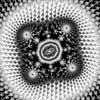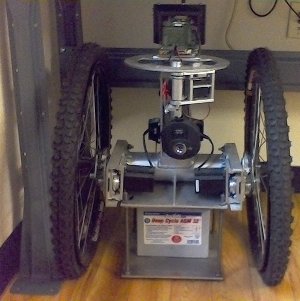-
Posts
578 -
Joined
-
Last visited
Content Type
Profiles
Forums
Events
Everything posted by moth
-
Python.org says codeacademy is using python 2.0. The shell or CLI is generally when you are typing commands or program names to be executed instead of clicking on an icon with a mouse. "how to think like a computer scientist" had some good tutorals, but it looks like it's been updated since the last time I was there so it may or may not be worth checking.
-
Do you need to add a line to the Python code file telling the shell to load the python interpreter? the first line has to be: "#!/bin/python" (no quotes) for bash on Linux but it might be different on your OS If you dig around Python.org for a while, you'll probably find the answer look for python script for the shell or so.
-
Should people over 45 have to turn in their weapons because they are too old to serve in a militia? this might be better in the gun control thread but the Dick act got me.
-
-
If I remember correctly Hofstadter makes a fair argument for consciousness as an illusion, but my sister-in-law has my copy of Strange Loop right now. Something to do with the way our brains represent other people in our "imagination" being turned back on itself to represent our "selves". Where's Acme when i need him?
-

Scientific testing (split from goal of science)
moth replied to Reg Prescott's topic in General Philosophy
you may have missed the part where Swasont explaind he was re-defining those words(inbread, bucktooth, and idiot) the same way Scott Mayers was re-defining words to suit his argument, and the meaning of the words Swansont used was NOT insulting. -
Cool been around a long time. Love the 30's "https://www.youtube.com/embed/u8CPqOyl-KQ"
-

Scientific testing (split from goal of science)
moth replied to Reg Prescott's topic in General Philosophy
It's been so long since i seriously investigated the issue that i'm not sure what i was saying about Popper either. i think the tests performed by people trying to learn the current model would only support the model. once they understand the model well enough to find deficiencies, then the tests they do are all a challenge to the model. or maybe i'm too utopian. -

Scientific testing (split from goal of science)
moth replied to Reg Prescott's topic in General Philosophy
When the Popperian world of the mind interacts with the world of recieved knowledge paradigms about reality arise and become stable until they are driven to extinction by better paradigms. reminds me of punctuated equalibrium in biological evolution. after all, even though Newton's paradigm of space was a flat geometry it was still consistant with space having a geometry, and is not a bad approximation. -

Scientific testing (split from goal of science)
moth replied to Reg Prescott's topic in General Philosophy
My personal prejudice is that the best feedback we can get of how well our models reflect reality, is that they work. If the model says an electron crossing a semi-conductor junction with some certain energy causes an emission of a photon with a specific frequency, and others can reproduce the effect, we know we are getting close. When we look at the unexpected behavior of galactic rotation speeds we know there is more to reality than our model can reveal. Models will always be incomplete because they are not the system they represent. they are closer to the system than wild guessing so trying to understand the models and where they work or fail is the only path i can see to the realism silly billy seeks. The video clip on scientific realism ended just when it seemed to be getting to the issue maybe silly billy could sum it up one more time? -

Scientific testing (split from goal of science)
moth replied to Reg Prescott's topic in General Philosophy
just a general question to the philosophers here, if truth is real, what is it's referrant? you are telling us truth is like porno, you know it when you see it,even though you can not define what you mean by that word truth (or reality for that matter). i think mathematics and logical systems are tools, and like any other tool if you use them incorrectly you get bad results. if used correctly they are like radar - illuminating new phenomena and giving a direction to human investigation of the universe. you know, the REAL universe we are all subject to. there is no universe of absolute truth any more than absolute position, or if there is, we don't have direct access to it by our own senses. -

Scientific testing (split from goal of science)
moth replied to Reg Prescott's topic in General Philosophy
Then I'll be the fool and wonder if the set of true is identical with the set of not false, "the king of France is bald" is not false when there is a King of France and he's bald. -

Scientific testing (split from goal of science)
moth replied to Reg Prescott's topic in General Philosophy
I'm no scientist, but Truth may have two flavors. One is spritual, absolute and universal. The other truth is defined and situational which makes it seem less nebulous and more useful to me. Is situational a word? been a long week. -

Scientific testing (split from goal of science)
moth replied to Reg Prescott's topic in General Philosophy
If you accept the premise a meteor hit the Earth, how could it be a variable number of days ago, GMT or otherwise? -

Scientific testing (split from goal of science)
moth replied to Reg Prescott's topic in General Philosophy
is this an "axiom of choice" kind of thing? if you want to calculate the trajectory to hit Pluto with a rock, a certain degree of accuracy is required. To predict the landing spot on the surface to the nearest millimeter, a different degree of accuracy is required. They are both the right answer. -

Scientific testing (split from goal of science)
moth replied to Reg Prescott's topic in General Philosophy
No, I would say they generate predictions that are more or less accurate. A model of the Earth popping into existence 5000 years ago is less accurate than a model that says the geological processes on Earth have been going on for billions of years. -

Scientific testing (split from goal of science)
moth replied to Reg Prescott's topic in General Philosophy
I think all our senses are an instrumentality that collect data, and help us make hopefully accurate models of reality (whatever that is). Scientific models seem like an extension to our senses that have given us access to places beyond our awareness so we can't say if the models are reality, only that they work to some degree of accuracy. It is an interesting question but mainstream Physics seems to have decided to shut up and calculate. -

Scientific testing (split from goal of science)
moth replied to Reg Prescott's topic in General Philosophy
We cross posted there, with my edit and your reply to the original post. It sounds like you are saying models should be classifiable as true or false, but true and fase are models, so which classification does boolean algebra belong to? -

Scientific testing (split from goal of science)
moth replied to Reg Prescott's topic in General Philosophy
Are the complementary states of True and False not a model? or is Boolean algebra Real? -
The stills that make up the animation are all Juia sets. If you are familiar with the imaginary unit (square root of -1) you'll probaly remember that a complex number has two components, one Real and one Imaginary. If you plot the Real numbers on one axis and imaginary units on an orthagonal axis then each compound number represents a point on a Cartesian grid. The key to making images is to use the complex "address" of a point as arguments to a function, for Julia sets the function is: multiply the number by itself and add a constant, then take the output from the function and find it's distance from the origin,if the distance is less than 2 use the output of the function as arguments to the function, when the distance becomes larger than 2 (for Julia or Mandelbrot sets), get the count of how many times you fed the dragon its tail, and assign a color value to the point based on that number. If you do this for a sequence of points on a line (or curve) you get pictures like this: The program I'm writing makes it easy to find interesting lines and specify zooms.
-
Just finished downloading the source code. I haven't looked yet, but it's probably 32-bit and i'm looking into arbitrary prescision like bignum. But i'm sure to learn a lot from their optimizations to the basic algorithm.
-
Once the coding-hobby moves to embedded processors, the spaghetti gets tucked away out of sight Every time i look at this I see Homer Simpson's 'bot begging for completion.
-
Thanks AJB, generating the Mandelbrot set, and of course Conway's Life were the reason i bought my first pc in `86 . I thought it was a cheap hobby but it can get expensive in terms of sleep-loss(for a spaghetti-coder like me).
-
lately, this has been my hobby: Still buggy but the parts are all there. AJB's recent blogs about iterated functional systems, and Daedalus' challenge on Bezier approximation inspired me to re-write an old idea i had for a program with a few updates. This is just a line segment but the curves are nearly done.
-
I get the impression that most people have no problem with legal restrictions on real world militia's (any well-armed mob). Some people just have a problem with legal restrictions on their own imaginary militias.


